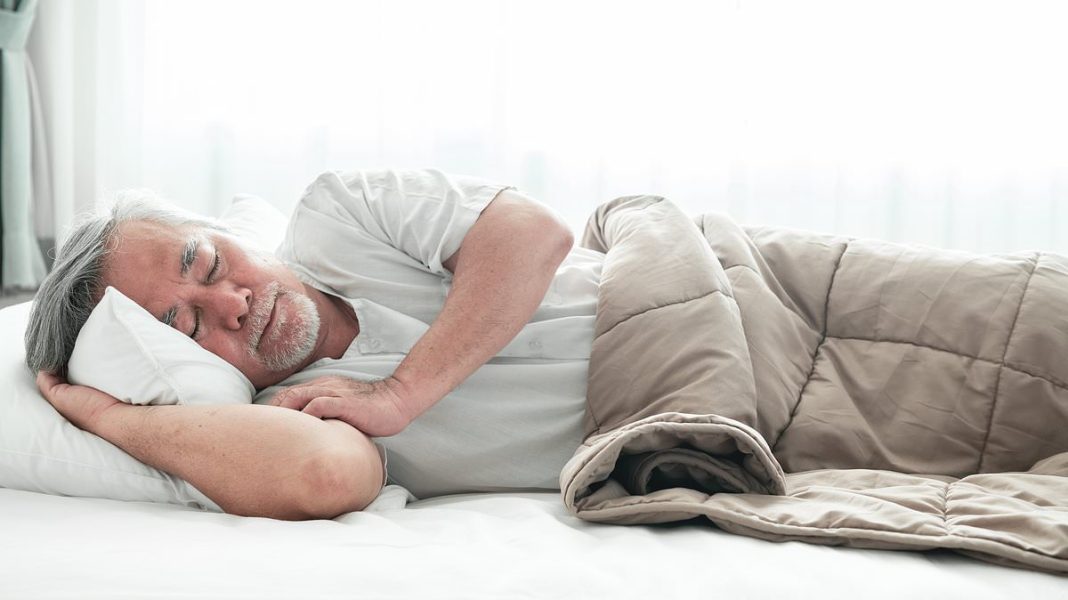Doctors warning as common sleep habit is linked to risk of early death,
Daytime napping may be linked to a higher risk of early death, according to a major new study.
The discovery was made by researchers who tracked the sleep habits of more than 86,000 healthy middle-aged adults.
They found that those who regularly napped—particularly in the early afternoon—were more likely to die prematurely than those who did not.
The study, presented at the SLEEP 2025 conference, found the risk of death rose by up to 20 per cent among frequent nappers.
Experts say daytime sleepiness may be a warning sign of disrupted or poor-quality night-time rest, and could point to underlying health problems such as sleep disorders, dementia, or heart failure.
Professor James Rowley, from Rush University Medical Center in Chicago, who was not involved in the research, said the findings should influence how doctors ask patients about sleep.
‘The major take-home message is that if a doctor asks about a patient’s sleep habits, they should also be asking about napping,’ he told Medscape Medical News.
‘In other words, doctors should be asking their patients, ‘Do you nap in the day?’
The study focused on middle-aged adults who did not work night shifts and had no major health problems at the outset.
This helped to rule out other explanations for excessive daytime sleepiness and suggesting that the link with earlier death may not simply be due to existing illness or lifestyle factors.
The participants’ sleep was assessed over a week-long period, using actigraphy—a method for monitoring a person’s sleep-wake patterns using a small, watch-like device called an actigraph.
Daytime napping was defined as sleep between 9am and 7pm.
On average, participants napped for around 24 minutes, with approximately a third of naps taken in the morning, between 9 and 11am.
During a follow-up period of 11 years, 5,189 of the participants died and overall, researchers noted that as people got older, they slept for longer later in the day.
After adjusting for potentially confounding lifestyle factors such as smoking, alcohol use and nighttime sleep duration, results showed that a less consistent napping routine was associated with a 14 per cent increased risk of mortality.
Scientists found the highest risk of death was seen in people who slept for the longest during the day, with people who nap between 11am and 1pm experiencing a seven per cent increased risk.
Lead researcher, Professor Chenlu Gao, from Harvard Medical School, said: ‘Our study fills a gap in knowledge by showing that it’s not just whether someone naps but how long, how variable, and when they nap may be meaningful indicators of future health risk.
‘While many studies have examined the links between sleep and mortality, they have largely focused on nighttime sleep.
‘However, napping is an important component of the 24-hour-sleep-wake cycle and may carry its own health implications.
‘Our findings suggest that certain patterns of napping could serve as early indications of declining health.’
The researchers warned that further research is needed to better understand the biological pathways underlying these associations.
They noted that longer or more irregular naps could reflect underlying health problems such as heart disease, type 2 diabetes, depression and dementia.
Other studies suggest the explanation may lie with the impact on our circadian rhythms—the natural sleep-wake cycles that determine a host of bodily functions.
The experts, from the Karolinska Institute in Stockholm, also argued that being asleep during the daytime could impact the brain’s ability to clear waste that builds up during the day.
The findings come after a landmark study last year suggested almost half of all cases of Alzheimer’s disease—the most common cause of dementia—could be prevented by tackling 14 lifestyle factors.
These included hearing loss, high cholesterol, vision loss and lack of exercise.
Experts claimed the study, published in the prestigious journal The Lancet, provided more hope than ‘ever before’ that the disorder that blights the lives of millions can be prevented.
Alzheimer’s Disease affects 982,000 people in the UK.
Alzheimer’s Research UK analysis found 74,261 people died from dementia in 2022 compared with 69,178 a year earlier, making it the country’s biggest killer.
One 2019 estimate put the annual death toll at 70,000 people a year with the health issues caused costing the NHS £700million each year to treat.
The WHO puts the annual global death toll from physical inactivity at around 2million per year, making it in the running to be among the top 10 leading causes of global death and disability.






